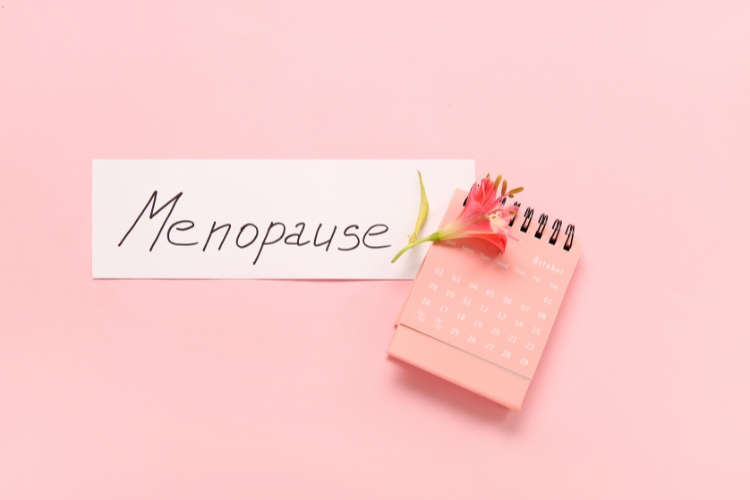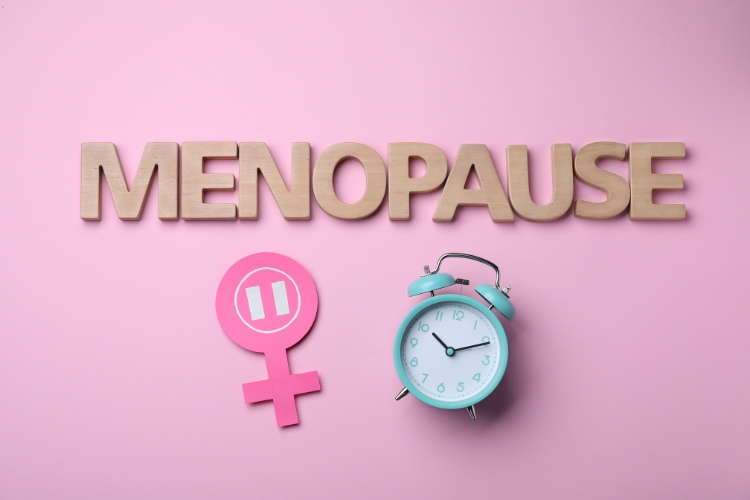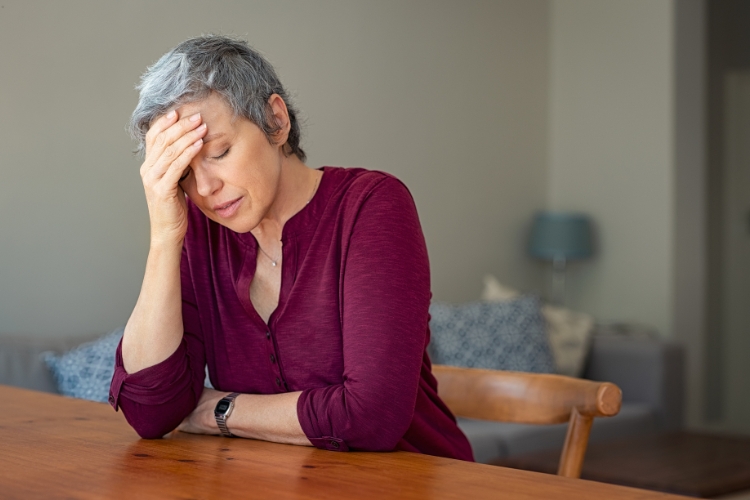Menopause is a natural and inevitable transition that every woman experiences as she approaches the end of her reproductive years. It is a significant hormonal shift that marks the end of a woman’s menstrual cycle and her ability to become pregnant.
However, despite its prevalence, menopause is often misunderstood and sometimes even viewed as a hormonal disorder.
In this blog article, we will explore the true nature of menopause, dispel common misconceptions, and provide insights into the hormonal changes that occur during this life stage.

What is Menopause?
1. Definition and Stages
Menopause is defined as the permanent cessation of a woman’s menstrual cycles, typically occurring between the ages of 45 and 55. It is not a single event but rather a gradual process that unfolds over several years. The transition to menopause is often divided into three distinct stages:
- Perimenopause: This is the period leading up to menopause, during which a woman’s ovaries gradually produce less estrogen. Perimenopause can last for several years and is characterized by irregular menstrual cycles, mood changes, and other hormonal fluctuations.
- Menopause: This is the point in time when a woman’s menstrual cycles have ceased for 12 consecutive months. At this stage, the ovaries have stopped producing significant amounts of estrogen and progesterone.
- Postmenopause: This is the period after menopause, during which a woman’s hormone levels continue to decline and stabilize.
2. Hormonal Changes
The transition to menopause is primarily driven by changes in the production of key hormones, particularly estrogen and progesterone. As a woman approaches menopause, her ovaries gradually produce less of these hormones, leading to the characteristic symptoms of this life stage.
- Estrogen levels decline: Estrogen is the primary female sex hormone, responsible for regulating the menstrual cycle, maintaining bone health, and supporting various bodily functions. During menopause, the ovaries produce less estrogen, leading to a significant drop in its levels.
- Progesterone levels decrease: Progesterone is another important female hormone that plays a crucial role in the menstrual cycle and preparing the uterus for implantation during pregnancy. As a woman approaches menopause, her progesterone levels also decline.
- Testosterone levels may shift: While often associated with men, testosterone is also present in women, albeit in smaller amounts. During menopause, a woman’s testosterone levels may undergo subtle changes, which can contribute to certain menopausal symptoms.
These hormonal changes are a natural and expected part of the aging process, marking the end of a woman’s reproductive years. It is important to understand that menopause is not a disorder, but rather a normal and necessary transition that every woman experiences.

Common Symptoms of Menopause
The decline in estrogen and other hormone levels during menopause can lead to a variety of physical and emotional symptoms. While the severity and duration of these symptoms can vary from woman to woman, some of the most common menopausal symptoms include:
1. Hot Flashes and Night Sweats
One of the most well-known symptoms of menopause is the experience of hot flashes and night sweats. These sudden feelings of intense warmth, often accompanied by flushing of the skin and sweating, can occur during the day or night, disrupting a woman’s daily life and sleep patterns.
2. Vaginal Dryness and Urinary Issues
The decline in estrogen levels can lead to thinning and drying of the vaginal tissues, a condition known as vaginal atrophy. This can result in increased incidence of vaginal infections, pain during intercourse, and urinary problems, such as incontinence and recurrent urinary tract infections.
3. Mood Changes and Sleep Disturbances
Menopausal women often experience mood changes, such as irritability, anxiety, and depression, as well as difficulties with sleep, including insomnia and restless sleep. These symptoms can be influenced by hormonal fluctuations and the overall adjustment to the changes associated with menopause.
4. Other Symptoms
In addition to the above, women may also experience other menopausal symptoms, such as:
- Decreased libido
- Joint and muscle aches
- Headaches
- Weight gain
- Fatigue
- Memory and concentration difficulties
It is important to note that not all women will experience the same set of symptoms, and the severity can vary greatly from individual to individual.

Menopause and Hormonal Balance
Menopause is fundamentally a hormonal transition, marked by changes in the levels of key reproductive hormones. Understanding the roles of these hormones can provide valuable insights into the menopausal experience.
1. Role of Estrogen
Estrogen is the primary female sex hormone and plays a crucial role in the body. During the reproductive years, estrogen is responsible for regulating the menstrual cycle, maintaining the health of the reproductive organs, and supporting bone density. However, as a woman approaches menopause, the gradual decline in estrogen levels can lead to various menopausal symptoms, such as hot flashes, vaginal dryness, and an increased risk of osteoporosis.
2. Importance of Progesterone
Progesterone is another vital hormone that works in tandem with estrogen. During the reproductive years, progesterone helps prepare the uterus for implantation during pregnancy and supports the maintenance of a healthy pregnancy. As a woman transitions into menopause, progesterone levels also decline, contributing to the disruption of the menstrual cycle and the onset of menopausal symptoms.
3. Testosterone and Menopause
While often associated with men, testosterone is also present in women, albeit in smaller amounts. During menopause, a woman’s testosterone levels may undergo subtle changes, which can affect libido, mood, and overall energy levels. Understanding the role of testosterone in the menopausal transition can help women and their healthcare providers address specific concerns and develop appropriate management strategies.

Menopause is Not a Disorder
1. Dispelling the Misconception
Despite the significant hormonal changes and various symptoms associated with menopause, it is important to understand that menopause is not a disease or a hormonal disorder. It is a natural and inevitable stage of a woman’s life, marking the end of her reproductive years. The hormonal fluctuations and physical/emotional changes experienced during menopause are an expected part of the aging process, not a disorder that requires “treatment.”
2. Embracing the Transition
Rather than viewing menopause as a problem to be solved, women need to embrace this transition as a natural and necessary part of their life cycle. By understanding the underlying hormonal changes and the various ways to manage menopausal symptoms, women can approach this stage with a positive and empowered mindset. Viewing menopause as a normal and healthy transition can help women navigate this phase of their lives with greater ease and acceptance.

Managing Menopausal Symptoms
While menopause is not a disorder, the physical and emotional symptoms associated with it can be challenging for many women. Fortunately, several strategies can help manage these symptoms and support overall well-being during this transitional period.
1. Lifestyle Changes
- Adopting a healthy, balanced diet rich in phytoestrogens (e.g., soy, flax, and cruciferous vegetables) can help alleviate some menopausal symptoms.
- Regular exercise, such as aerobic activities and strength training, can help manage weight, improve mood, and reduce the severity of hot flashes.
- Practicing stress-reduction techniques, like meditation, yoga, or deep breathing, can help manage mood changes and sleep disturbances.
2. Hormone Therapy
In some cases, healthcare providers may recommend hormone therapy (HT) to help manage severe menopausal symptoms. HT involves the use of synthetic or bioidentical hormones, such as estrogen and progesterone, to help replenish the declining levels of these hormones. This can be an effective approach for managing hot flashes, vaginal dryness, and other symptoms, but it should be discussed with a healthcare provider to weigh the potential risks and benefits.
3. Alternative Therapies
In addition to lifestyle changes and hormone therapy, some women may choose to explore alternative therapies to manage their menopausal symptoms, such as:
- Herbal supplements (e.g., black cohosh, red clover, evening primrose oil)
- Acupuncture
- Mindfulness-based practices
- Cognitive-behavioral therapy
It is important to discuss any alternative therapies with a healthcare provider, as some may interact with medications or have potential side effects.
Conclusion
Menopause is a natural and inevitable transition that every woman experiences as she approaches the end of her reproductive years. It is not a hormonal disorder, but rather a normal part of the aging process marked by significant changes in the production of key reproductive hormones, such as estrogen and progesterone.
While the physical and emotional symptoms of menopause can be challenging, it is essential to understand that these changes are a natural and expected part of a woman’s life cycle. By embracing this transition and adopting appropriate management strategies, women can navigate the menopausal years with greater ease and a positive, empowered mindset.
Whether through lifestyle modifications, hormone therapy, or alternative therapies, there are multiple ways to effectively manage menopausal symptoms and support overall well-being during this important life stage. By understanding the underlying hormonal changes and the various approaches to symptom management, women can empower themselves to navigate the menopausal journey with confidence and resilience.
Frequently Asked Questions
- Is Menopause a Hormonal Disorder?
No, menopause is not a hormonal disorder. It is a natural and inevitable transition that every woman experiences as she approaches the end of her reproductive years. The hormonal changes associated with menopause, such as the decline in estrogen and progesterone levels, are a normal part of the aging process, not a disorder that requires “treatment.” - What are the Common Symptoms of Menopause?
The most common symptoms of menopause include hot flashes, night sweats, vaginal dryness, mood changes, sleep disturbances, decreased libido, joint and muscle aches, headaches, weight gain, and fatigue. However, the severity and duration of these symptoms can vary greatly from woman to woman. - How Can Menopausal Symptoms be Managed?
Menopausal symptoms can be effectively managed through a combination of lifestyle changes, hormone therapy, and alternative therapies. Lifestyle changes, such as adopting a healthy diet, regular exercise, and stress-reduction techniques, can help alleviate some symptoms. Hormone therapy, which involves the use of synthetic or bioidentical hormones, may be recommended by healthcare providers to address severe symptoms. Additionally, alternative therapies, like herbal supplements, acupuncture, and cognitive-behavioral therapy, can also be explored. - Is Menopause a Necessary Transition for all Women?
Yes, menopause is a necessary and inevitable transition that all women experience as they approach the end of their reproductive years. It marks the permanent cessation of a woman’s menstrual cycles and her ability to become pregnant. While the timing and specific symptoms of menopause can vary, it is a normal and expected part of a woman’s life cycle, not a condition that can be avoided.

